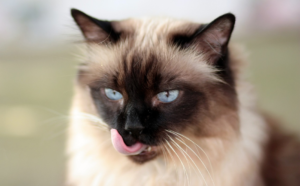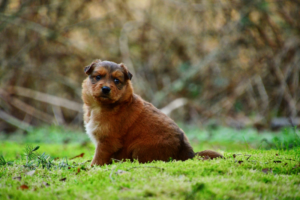We are living in weird times, we are in the middle of a pandemic, there is very little happening, shops open and close then open again, as do gyms. Many of us (including me) have already noticed the so-called corona kilos and now winter is approaching as well, putting an end to most outdoor sport activities. Personally, I am very annoyed with these extra kilos, my pants are too tight, and I am confronted with that pudgy belly every day – it is not charming. But it is so hard to motivate myself to get rid of these kilos, I am sat at home, the weather is bad, so I am not in the mood to go for a walk or to cycle. Instead, I bake or hang out with my roommates and usually there are some snacks on the table, and man they are so hard to resist!

But it is not only me who is after snacks, spending more time at home means happy days for many pets. Having their owners around nonstop, means more opportunities for being petted and more chance of snacks! It is so hard to resist those eyes looking at you hopefully when you walk towards the kitchen, or the miaows and purrs directed your way. We have all fallen for those and it is no problem when it happens once in a while but it becomes more problematic when it happens a lot.
Our pets do not notice that their clothes are getting tight and are not getting annoyed with their bigger bellies. Most pets love food and will keep on trying to get a snack from you, whether they are hungry or not. So, when it comes to our pets it is up to us, to keep a close eye on them and their weight. Even though our pets will keep on begging us for food, it does not mean they are not bothered by extra weight, because just like for us, obesity poses a big risk to their health.
It is not easy to determine if your pet is too heavy, even for vets and other practitioners it is not always clear. When it is clear that our beloved pupster or kittycat is on the heavy side, a difficult road is ahead because just like us pets do not enjoy diets. They will try every trick in the book to convince you to give them more yum-yums.
Spending the day with a whiny pet is not easy and it is very hard not to give in and give them that snack just to make them stop. Additionally, we do not like to feel that our pets are suffering. We love them deeply and pets that are hungry can make you feel like the meanest person in the world for denying them food. In some ways putting your pet on a diet, is even more difficult than doing a diet yourself.
However, it is so important that you do keep up with your pet’s diet because it will help your pet lead a happier and healthier life. Instead of giving them a snack, be active with them – go outside or play with them. This is a win-win situation because it might help you get rid of some of that extra weight too. When possible provide pets with toys that they can play with by themselves or with other pets, this will help them be active without you needing to be involved. Make sure that the amount of food you provide your pet is fitting for their size and activity pattern.
If you do want to give snacks once in a while, switch to healthier options. Now that baking is all the rage, why not have a go at baking healthy low fat, sugar-free and salt-free snacks for your pets? This is also a win-win situation because it will not make you end up with cakes or cookies you want to eat yourself! Just putting the search term ‘recipes for healthy pet snacks’ into a search engine will provide you with lots of options and ideas.

Across the world, obesity is seen by vets and other practitioners as one on the largest health risks for pets. We must make sure that we show our love for our pets in other ways than giving them food and snacks, to prevent them from gaining too much weight.
At Human Behaviour Change for Animals, we are also very concerned about the levels of pet obesity and have developed an online course. This course will help practitioners, including vets, animal welfare organisation staff, trainers, and many more professionals, to provide pet owners such as you and me, with tools to help us understand how to manage our pet’s weight and how to keep us motivated to do the best for our animals. This course will launch on the 18th of January. If you are interested to learn more about the course or would like to participate click here
The RSPCA has a simple guide to check whether your cat or dog is obese. Even though you can do this check yourself for cats and dogs, it is important to seek the advice of your vet when you suspect your pet is too heavy. They will help you determine if your pet is indeed too heavy, and provide you with assistance and a diet and exercise plan suited for your animal.
If you would like to learn more about managing obesity in horses, see the World Horse Welfare resource Is your horse the right weight? and this guide written by the extremely experienced Dr Tamzin Furtado, who is the key facilitator for the HBCA obesity course.
Author: Anouk de Plaa

